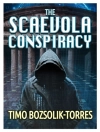In ‘The Specimen Case, ‘ Ernest Bramah artfully weaves a narrative steeped in the atmospheric charm of early 20th-century detective fiction. Set against a backdrop of Victorian England, the story revolves around the peculiar case of a missing specimen from a cabinet of curiosities. With a deft blend of whimsical humor and astute observation, Bramah employs a distinctive literary style that melds wry dialogue with vivid descriptions, inviting readers to immerse themselves in both the eccentric characters and the enigmatic plot twists. This novella is enriched by its exploration of themes such as obsession, the quest for knowledge, and the interplay between science and the uncanny, a hallmark of Bramah’s writing during an era that was deeply curious about the mysteries of the natural world. Ernest Bramah, known for his invention of the enigmatic character Max Carrados, was a writer whose diverse interests in literature, philosophy, and technology greatly influenced his storytelling. His experiences as a clerk and a trader in various exotic goods likely inspired the intricate details and intellectual nuances found within ‘The Specimen Case.’ Bramah’s fascination with the scientific advancements of his time resonates through his narratives, particularly in their capacity to meld the extraordinary with the mundane. I highly recommend ‘The Specimen Case’ to readers who appreciate clever mysteries that challenge the intellect while entertaining the mind. Bramah’s unique perspective captures the spirit of curiosity and the allure of the unknown, making it an essential read for fans of classic detective fiction and those intrigued by the interplay of science and narrative imagination.
Про автора
Ernest Bramah, born Ernest Bramah Smith in 1868 in Manchester, England, was an esteemed English author esteemed for his prolific and versatile literary contributions. He famously created the character Kai Lung, an itinerant storyteller whose adventures are showcased in a series of books acclaimed for their unique blend of fantasy and humor. His pen name, ‘Bramah, ‘ derived from the inventor of the safety lock, reflected his innovative spirit. Despite losing sight in one eye following an accident, Bramah’s literary vision remained clear. He ventured into multiple genres, including science fiction, where ‘The Secret of the League’ stands out as a notable dystopian work, echoing influences of socialism. Bramah’s creation, the blind detective Max Carrados, featured in ‘The Specimen Case’, marks a significant contribution to the detective genre, evidencing his ability to weave intricate plots with a touch of wry wit. His works display a delightful interplay of satire and speculative fiction, resonating with Edwardian readers and beyond. ‘The Wallet of Kai Lung’ and ‘Kai Lung Unrolls His Mat’ remain exotic staples of fantastical literature, exhibiting his knack for crafting pseudo-oriental prose that transported readers. Despite not achieving widespread fame during his lifetime, Bramah’s legacy endures through the ongoing appreciation of literary connoisseurs. He passed away in 1942, leaving behind a cache of witty, timeless prose for future generations to discover (Bramah, E., 1900-1940).












